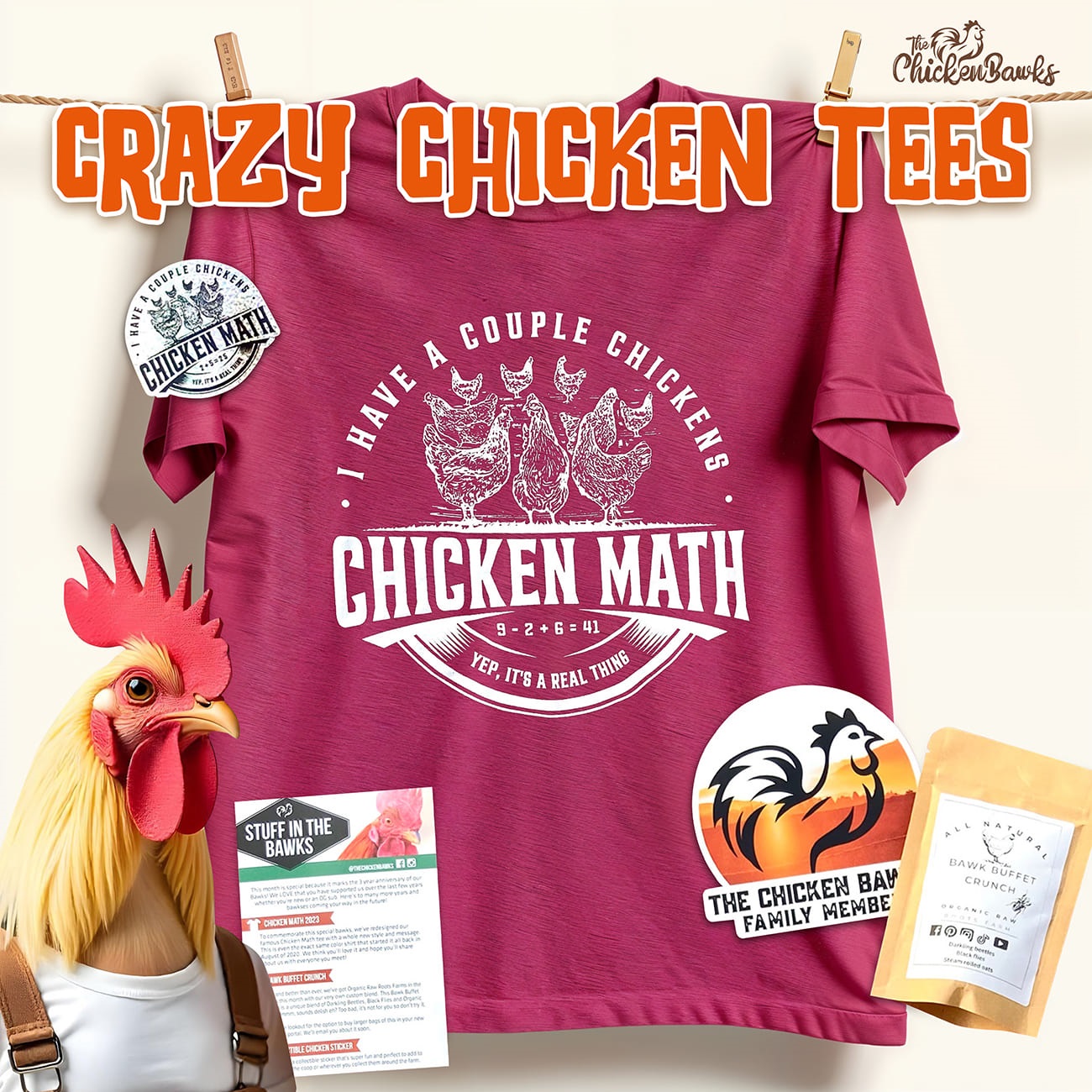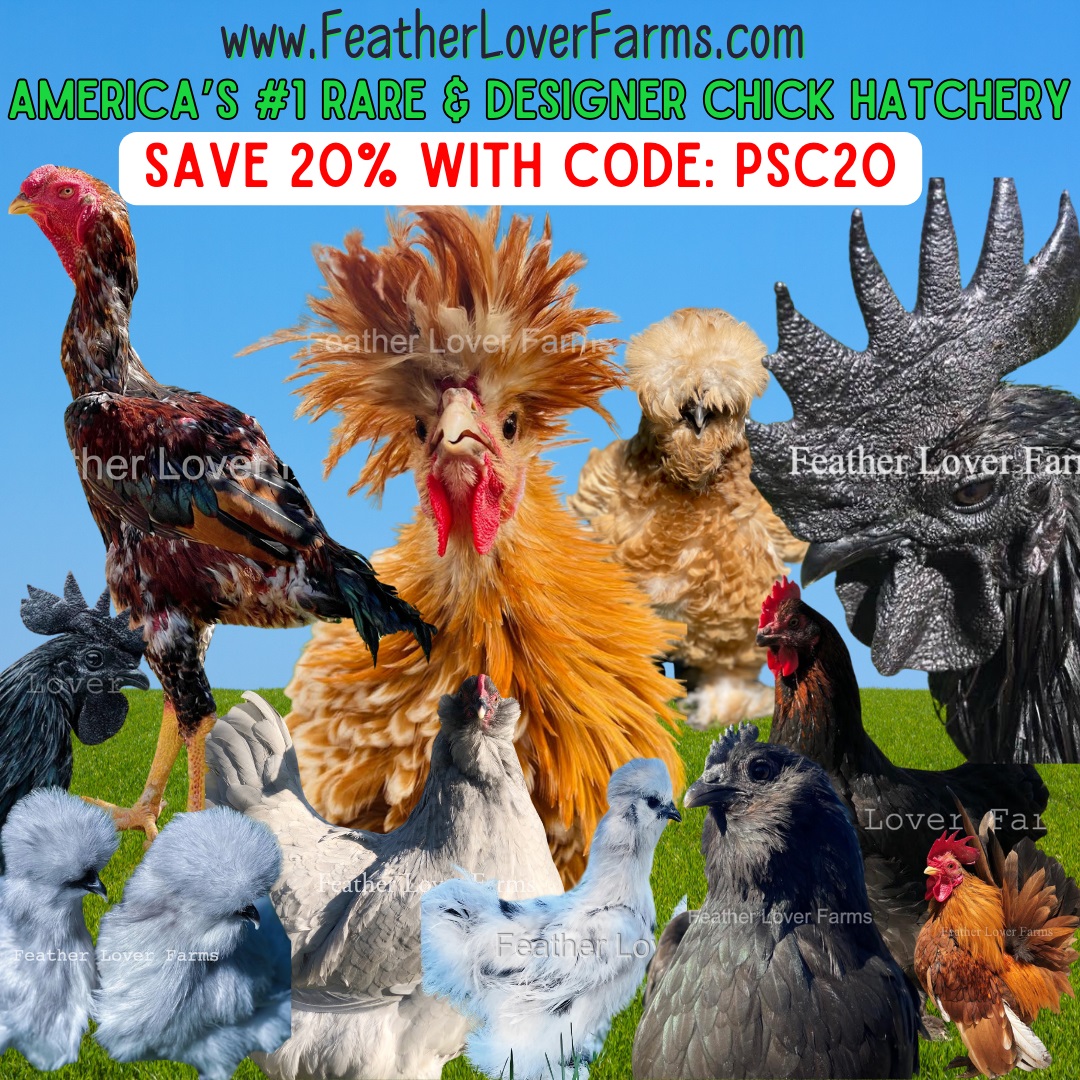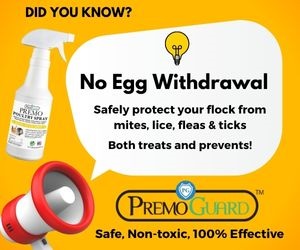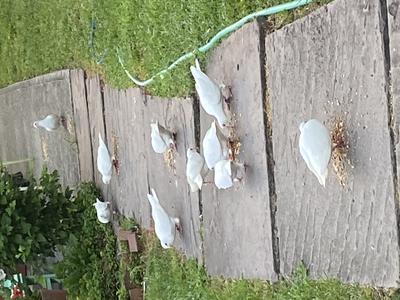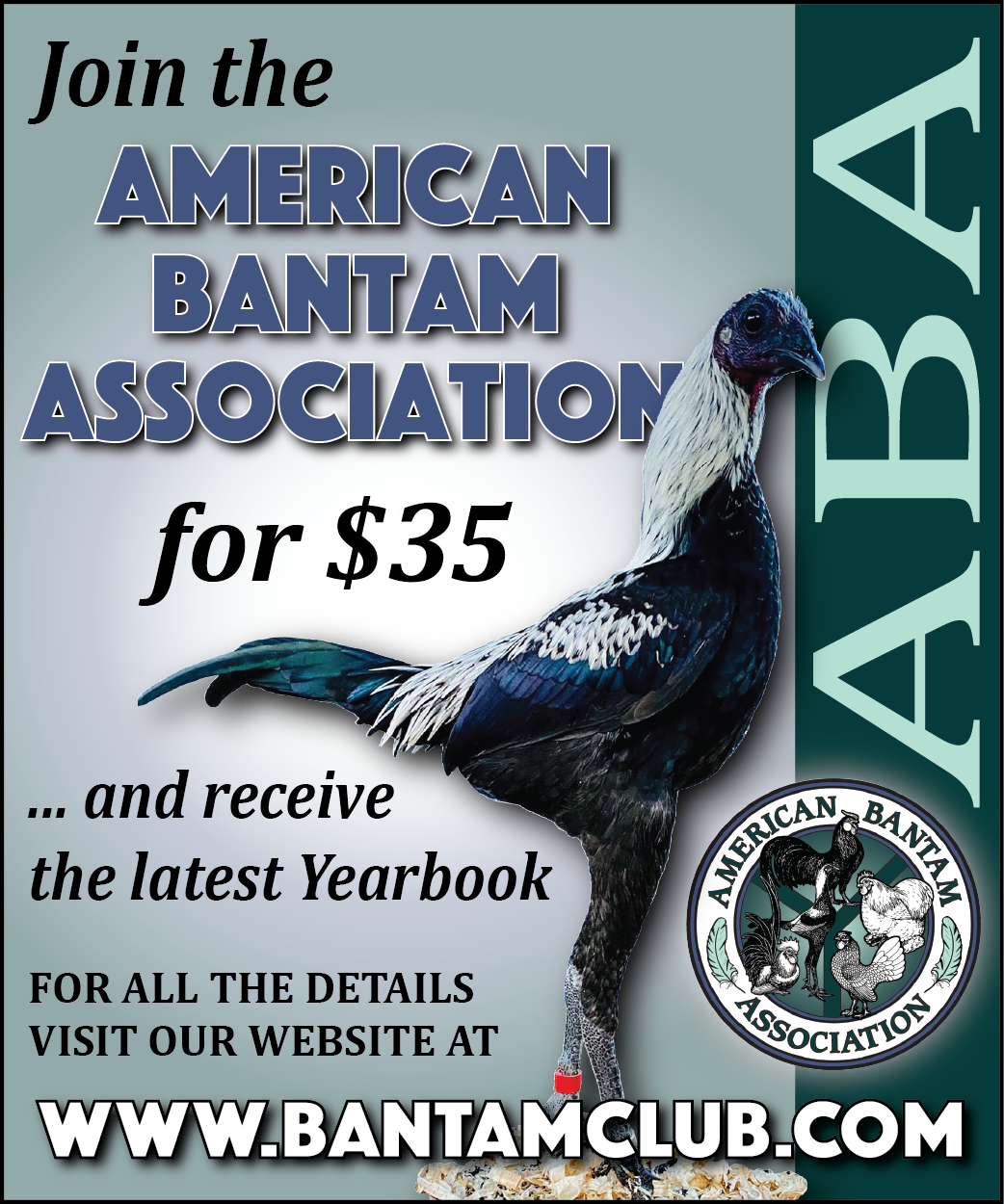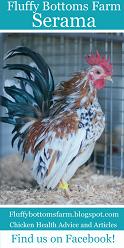Coccidiosis
Researched by Lisa Vaughn
Coccidia are protozoans that infect poultry and other animal’s GI tract. Each species is host specific, meaning that the coccidia that affect your birds are not the same as the ones that can affect your dog or cat or even yourself. They are very common and can usually be found in most any person’s backyard flock. Although they are very common and most birds have them, they usually don’t cause a problem unless found in high numbers or in birds that are immune-compromised. Chicks are very susceptible and can die, even with treatment. Some birds are able to develop immunity to the parasite after long or repeated exposures.
Signs and Symptoms
Some birds may come down with diarrhea, experience weight loss and decreased egg production. You may notice a decrease in food and water intake and general sick appearance.
Chicks may develop “pasty butt”, which is when the fecal material builds up on and around the chicks vent and surrounding feathers. This is usually a sign of diarrhea in the chick. There are other things that can cause this in your chicks, such as stress from shipping or incorrect temperatures in the brooder. If you notice this in your chicks you should clean the fecal materials away as soon as possible, just use some warm waterand a paper towel, being gentle as to not tear the chick’s delicate skin. Another symptom often seen in chicks infected by coccidian is bloody diarrhea. Droppings may also appear to have mucus like texture.
Some birds appear droopy and will have un-kept feathers. There is a high chance for mortality in young birds infected with coccidia. Your veterinarian can tell you if your birds are experiencing an infection with coccidia with a fecal sample, however, many birds will have coccidia in their feces even when they are not showing symptoms so a thorough exam and history of the symptoms should be obtained to ensure the birds are not misdiagnosed.
Prevention
It is nearly impossible to completely prevent your birds from being infected with this parasite. Birds can be kept in wire floored cages to help reduce the risk of infection but even those birds kept in this manner have been found to contract the parasite. The reason is that it is so common in the environment and is very easily transmitted and lives for a long time in the environment, up to a year if the environment is favorable. It is also resistant to many disinfectants commonly used around poultry. The coccidia can survive on clothing, feeders, waterers, in the dirt and litter or bedding. The infection process only takes between 4-7 days. Keeping the environment as clean as possible will help.
Your brooder should be cleaned out between each new chick arrival. Use a material that is easy to clean and non-porous. New bedding should be used each time and the feeder and waterer should be thoroughly disinfected. Coccidia is an opportunistic pathogen so it is most commonly seen in cases of poor nutrition, poor sanitation, overcrowding or after stress, such as changes in feed or severe weather. So keeping your birds healthy and in a clean environment with the proper feed is very important.
You can put your birds on an anticoccidial medication to help prevent infection. Many are available that can be mixed into the feed, most drugs are used for both prevention and treatment. Lower doses are used when attempting to prevent coccidia because they are given on a continuous basis.
The downside of these drugs is that they can slow or even prevent the naturally occurring immunity process from taking place. Meaning, that birds that are given anticoccidials in their feed all the time may never develop a natural immunity against coccidia. This is ok in birds that are intended for slaughter and won’t be around very long, but if you have a small flock of birds that you intend to keep for years it may not be in their best interest to use the feeds with these medications already in them.
Treatment
There
are many drugs available on the market to prevent and treat coccidia.
You use a higher dose when trying to treat coccidia than you do when
trying to prevent it. The other difference is that when using these
medications for treatment you will want to put them in the birds water
rather than in the feed. It is also recommended to increase the amount
of Vitamin A and K that the birds receive to help boost their immunity.
It is important to rotate the drug used to prevent and treat coccidia in your flock so you don’t end up with a strain that becomes resistant to one particular drug. Treating with the full dose for the appropriate amount of days will also help prevent resistance from occurring.
The most common drug used in treating poultry in the back yard setting is Amprolium, also known as Corid. It can be mixed in the water and is used for 3-5 days for effective treatment. It works by mimicking an important amino acid called thiamine that the coccidia need to survive. The coccidia attempts to use the amprolium instead of thiamine and dies. Amprolium is very safe, up to 8 times the recommended dose has been given without significant affects.
The dosing is as follows, mixed in water:
*The preventative dose (.006%) for Corid 20% Soluble Powder is 1/3 teaspoon/gallon.
*The preventative dose (.006%) for Corid Liquid (9.6% Solution) is 1/2 teaspoon/gallon.
*The moderate outbreak dose (.012%) for Corid 20% Soluble Powder is 3/4 teaspoon/gallon.
*The moderate outbreak dose (.012%) for Corid Liquid (9.6% Solution) is 1 teaspoon/gallon.
*The severe outbreak dose (.024%) for Corid 20% Soluble Powder is 1.5 teaspoons/gallon.
*The severe outbreak dose (.024%) for Corid Liquid (9.6% Solution) is 2 teaspoon/gallon.
What can we help you find? Search the website:
What's New Around Here?
-
Wanted: White or Black O Shamo chickens
Looking O Shamo. Indianapolis, IN 46227z I can be reach by 218-446-2007 Or tawkthang97@gmail.com -
PA - White Homing Pigeons
Pure white homing pigeons for sale. Contact me via email: arm1500@hotmail.com Pickup only. Thank you, Al M. -
Mabank Poultry Classic
Information on the Mabank Poultry Classic


